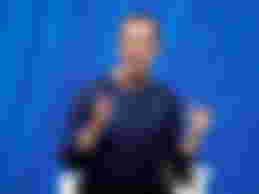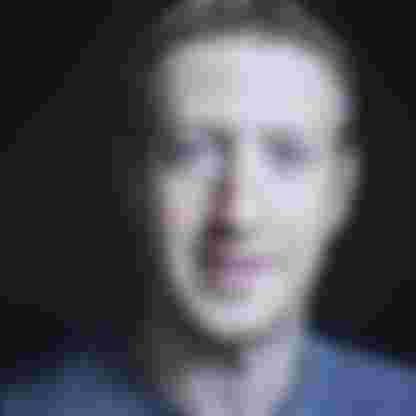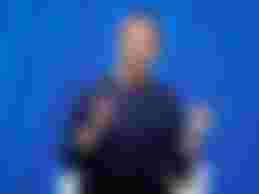Hello to all the members here...
I hope you are all good and happy...
Today I decided to tell you the great motivational story of a great person....
In this success story, we will share with you the biography of Mark Zuckerberg, the founder of Facebook, the social network with 1 billion monthly active users, and the latest billionaire in the world.
Thanks to Facebook, people can easily communicate with their friends around the world. In the not too distant past, society did not have such a chance. Although Facebook is often known as a communication and meeting place for new people, the platform is not just about these features. Facebook also has numerous community and fan pages that bring people together and each is built around a specific area of interest. In addition, the Facebook database has a higher number of user profiles than many other dating sites, so users have a good chance of finding their soulmate on the platform.
Who is Mark Zuckerberg?

Mark Elliot Zuckerberg was born on May 14, 1984 in Dobbs Ferry, New York's suburban area, and like his sisters Arielle, Randi and Donna, Mark grew up in the area. The second of four children in the family and the only son, Mark's father, Edward Zuckerberg, is a dentist, and his mother Karen Zuckerberg is a psychiatrist. When he was a child, his father's practice was right next to their home.
Mark became interested in computer programming when he was in primary school. Realizing that people were divided into computer programmers and users at the age of 10, Mark had his first computer with an Intel 486 microprocessor.
We know from Mark Zuckerberg's life story that he learned Atari BASOC programming language from his father and when he was 12 years old, he created a messaging application called "ZuckNet" using this language. Thanks to the application, he was able to connect all the computers in his home and his father's office, and transfer messages between them.
His father had installed the application on his computer in his office, so when a new patient came, his assistant could notify him through this application. Apart from that, Mark was also interested in computer games and programming of communication devices. His father, Edward Zuckerberg, even hired a computer teacher named David Newman to teach his son private lessons.
During his high school years, Mark developed a "media player" called Synapse for MP3 playlists. This application, which he programmed as an artificial intelligence, could analyze the song preferences of the users, make “guesses” about the songs that any user might want to listen to, and create playlists based on these predictions. Although Microsoft and AOL, who are closely interested in Synapse, wanted to buy the application, the young talent, the IT giant politely turned down the offer of these companies. He declined many similar offers of thousands of dollars and an offer to work for one of the best companies in the IT industry.
Before long, Mark Zuckerberg entered Phillips Exeter Academy, an elite prep school located in New Hampshire. Here, his performance in science and literature was extremely successful. At the same time, he showed his talent in the sport of fencing and even became the captain of the fencing team. Despite this, he maintained his interest and enthusiasm for coding, because the field he wanted to work in was software.
In 2002, Zuckerberg entered Harvard University after graduating from Phillips Exeter. In his second year in the Ivy League, he gained a widespread reputation as a software developer on campus. During this period, he wrote a program called CourseMatch, thanks to the program, students could choose their own course topics from the course lists of other users.
FaceMash: Fun Site Developed for Voting
One summer evening in his Harvard dorm room in 2003, when he was insomnia, Mark Zunkerberg came up with the idea to create a site called FaceMash. He decided to hack the Harvard database where the students uploaded their own profile pictures. He quickly developed a program. The program randomly selects the photos of any 2 female students in the database, putting these photos side by side, "Which is sexier?" it asked, and it allowed users to vote.
The site received a lot of attention, and most of the students at Harvard had visited the site. However, when the number of visitors exceeded the limit, the server crashed due to overload. Mark admitted to doing what he did before a committee was formed by the university administration for the hacking. Of course, nobody told Mark Zuckerberg "Well done" and got disciplinary action. However, thanks to FaceMash, he discovered that this type of thing was a big deal in the community. In the meantime, let's not go without specifying, Harvard has never been willing to make a statement about this incident.
The Rise of Facebook
About 10 months before Zuckerberg's legendary FaceMash incident, a Harvard student named Divya Narendra came up with the idea to create a private social network for students, the vast majority of whom had no emotional contact. According to Narendra, students' Harvard email addresses could be used as their main username on the network.
Divya Narendra's friends with whom he worked on the idea were twin brothers Tyler and Cameron Winklevoss. Howard Winklevoss, the twins' father, was a successful financial advisor, worked hard for his sons and set aside large sums of money. Therefore, the starting capital required for the platform of the future was easily found.
In his speeches, Narendra told Mark that the name of the project might be "Harvard Connection" (later this name became ConnectU) and that members can share their photos, personal information and useful links on the internet. At this point, all Mark Zuckerberg had to do was program the site and create a custom source code so that the system could run as fast as possible.
After a private meeting with the Narendra and WInklevoss brothers, Zuckerberg agreed to be involved in the project but had doubts about the potential of his new partners. While working on Harvard Connection, he had a great idea for his own social platform.
On February 4, 2004, Mark Zuckerberg purchased the domain name TheFacebook.com, now known worldwide as Facebook.com. However, with this domain name it only operated within Harvard.
When Zuckerberg and his friend Eduardo Saverin realized that the number of users registered on Facebook had already reached 4,000, they also realized that they needed support from new developers. One of these developers was Dustin Moskowitz, Mark's neighbor, who made Facebook accessible to students at Columbia University, Stanford and Yale.
After a while, all students could register on the site. The main condition was the presence of an e-mail address with the extension ".edu" indicating that the user was in the education area. It should be said that this strategy was quite successful at the beginning. The project attracted a certain user base and the attention had the desired qualities. Whenever a user wanted to become a member of the site, they had to provide detailed profile information and use a real profile photo next to the ".edu" e-mail address. The profiles of people who used avatars instead of their own photos were deleted.
Before long, Facebook was getting more and more popular out of the educational realm. Mark Zuckerberg had started looking for investors for the site. The first investments came from Peter Thiel, one of the founders of PayPal and well-known in Silicon Valley. Peter Thiel transferred $ 500,000 to the platform, which was enough to meet Facebook's goals as soon as possible. The project continued to progress rapidly. More than 1 million people had joined the social network in less than a year after its establishment. They needed more investment to further develop Facebook. At this point, Accel Partners invested $ 12.7 million in Facebook, while the investment by Greylock Partners was worth $ 27.5 million.
By 2005, Facebook had become an accessible platform for all educational institutions and universities in America. Zuckerberg still thought his project was a social network for students. However, users' interest in Facebook was increasing rapidly. Therefore, it was decided to open the platform registration to the public. Thus, the "epidemic" of Facebook started.
The feature that quickly attracted the attention of users on Facebook was that friends who knew each other in real life could also communicate online. This feature was brand new to humans.

The Facebook audience expanded rapidly, but the revenue structure of the project was still uncertain. Everyone thought that their main source of income should be content ads. Each Facebook user created a detailed profile on the platform, which meant that ads compatible with their profiles could be shown. In this way, marketers could be offered a sufficient number of options to create advertisements that could attract the attention of customers. But Facebook continued to expand its user base. When the number of users exceeded 50 million, large companies began to offer Zuckerberg to buy Facebook. Yahoo!, One of these companies, offered exactly $ 900 million for Facebook. This was a pretty impressive opportunity, but it obviously didn't satisfy Mark.
Zuckerberg bought 503.6 million shares of the company after Facebook went public. Now Zuckerberg controls 60% of the majority of the votes in the company, 35% belongs to Eduardo Saver and 5% belongs to Moskowitz, who joined the team later. Another friend of Mark's, Chris Hughes, was appointed as Facebook's press representative.
Lawsuits Filed Against Facebook
When the Facebook project was launched, it brought along a series of scandals. Six days after the site went live, twin brothers Cameron and Tyler Winklevoss, who are seniors at college, and Divya Narendra accused Mark Zuckerberg of stealing his ideas. In 2003, they claimed that they signed a deal with Zuckerberg to complete the establishment of the social network HarvardConnection.com. According to their statements, Zuckerberg did not share the results of his work with them and used the original source code to create Facebook.
In the same year, brothers Narendra and Winklevoss launched their own social network, renaming ConnectU. But they also continued to move against Mark Zuckerberg, complaining to the Harvard administration and the Harvard Crimson newspaper. Initially, Zuckerberg pressured reporters not to publish the investigation, showing what he had to do for HarvardConnection as per the agreement, explaining that these improvements had nothing to do with Facebook.
Although the Winklevoss brothers and Narendra sued Mark Zuckerberg, their allegations were dismissed by the court. But they were very determined on this issue and filed a second lawsuit. This time, the court studied the source code to see if they were actually stolen. But the situation was still uncertain. The examination results were not shared with the outside. In 2009, Zuckerberg agreed to pay $ 45 million to ConnectU to resolve the case, with $ 20 million in cash and the remainder in the form of corporate shares. Thus, the lawsuit process was closed. Until then, the number of ConnectU users had not yet reached 100 thousand, while Facebook held an audience of approximately 150 million people.
The Winklevoss brothers were not satisfied with the outcome of the case and filed a petition with the American Court of Appeals. However, the petition was returned by the court. According to their lawyer Jerome Falk, the appellate court had based the extradition order solely on the settlement between the parties, indicating that the parties to the case had no right to request a review of the case after settlement. According to the lawyer, the court order was illegal because Mark Zuckerberg provided misleading information about the company's value in a 2008 statement.
On May 17, 2011, Cameron and Tyler Winklevoss filed another lawsuit against Mark Zuckerberg, owner of Facebook, in the US Supreme Court. This was the last move the twin brothers made to get the court to retake the matter.
Bill Gates and Facebook
In 2007, an extremely important development took place for Facebook. Microsoft bought 1.6% of Facebook's equity shares for a very high price of $ 240 million. According to many analysts, Facebook's total value has reached 15 billion dollars with this purchase. For the company whose annual revenue does not exceed $ 200 million, this development has had very good results. After the deal, Bill Gates created a Facebook account and started spending a few hours each day talking to people on Facebook. But then he decided to close his account for a while because there were too many people who wanted to talk to him and practically it was not possible to talk to all of them. Despite this, Gates has launched a worldwide campaign for Facebook. This campaign had a special meaning for Microsoft, which made an exclusive advertising agreement with Facebook until 2011.
How Does Facebook Generate Revenue?
In 2013, Facebook company's turnover reached $ 7.87 billion, while its net income was worth $ 1.5 billion. The growth rates were also extremely impressive: turnover had increased six times within three years.
Facebook's main earnings come from content ads posted on the social network's pages. The rapidly increasing number of users and the time these people spend on the site generate ad revenue. So much so that content ads accounted for 85% of the company's cash flow last year.
The vast majority of the remaining 15% income came from discounts earned on purchases made with the Facebook payment system. These deals are usually not about real products, but for example virtual goods such as seeds, fruits and vegetables purchased by fans of the famous game Farmville developed by Zynga.
Even though it may seem like entertainment, virtual products constitute an extremely serious market, and the report published by Facebook confirms this. The company had predicted that the global market turnover for virtual products would reach 7 billion dollars in 2010 and 15 billion dollars by 2014.
In early January 2013, Facebook began testing its paid private messaging app. In practice, you had to pay $ 1 to Facebook for each message you sent to people who were not on your friends list, and the message was sent directly to the "in" box instead of the "other" of the sender. But Facebook went a little further and realized that some users were worth more than $ 1. For example, if you wanted to send a message to Facebook CEO Mark Zuckerberg and get access to his message box, you might have to pay $ 100 for such a special option. Without a doubt, one of the simplest ways to generate additional income was this service.
Purchasing Instagram, Oculus Rift and Whatsapp Apps
Mark Zuckerberg, who is also a great strategist, continues to acquire companies that can operate as independent companies under the umbrella of Facebook.
In April 2012, Facebook paid $ 1 billion in cash and stock and bought the mobile photo sharing app Instagram. Originally developed by Mike Krieger and Kevin Systrom as an iOS app, it is now available on Androis OS.
In March 2014, the company acquired Oculus Rift for $ 2 billion. For Oculus Rift, which was developed as virtual reality hardware by Oculus VR Company headed by Palmer Freeman Luckey, Facebook gave 23.1 million of its shares in addition to the 400 million dollars it paid in cash. It also pledged to pay an additional $ 300 million in incentives if it passes certain stages in the future.
Again in October 2014, Mark Zuckerberg completed the purchase of Whatsapp for $ 22 billion. He gave 177,760,669 shares of the company in addition to the $ 4.59 billion worth of cash he paid in return. Instant messaging application Whatsapp was founded in 2009 by Jan Koum and Brian Acton.
Mark Zuckerberg: 2010 Man of the Year Selected by TIME Magazine
In January 2010, 26-year-old billionaire Mark Zuckerberg, founder and CEO of Facebook, was named Person of the Year by TIME magazine. Other names nominated for that year were Lady Gaga, James Cameron, and Wikileaks founder Julian Assange. But TIME magazine had chosen its hero. "This social network, created by Mark, has been able to connect almost one tenth of the world's people," said Richard Stengel, editor-in-chief of the magazine. explained in the form. According to Stengel, "Facebook today operates like the third largest country in the world, recognizing its members more than any government in the world has done."
According to TIME magazine, none of those who have been named Man of the Year in past years have made such a big impact as the 2010 winner. Mark was so popular in 2010 that even a movie called "The Social Network" was shot by David Fincher. In the film, Jesse Eisenberg had a successful performance as Mark Zuckerberg, founder of Facebook. American President Bill Clinton and Barack Obama are among the people of the year selected by TIME magazine in previous years.
At the same time, in 2010 Forbes magazine declared Mark Zuckerberg as the youngest millionaire on the list with his $ 4 billion fortune.
In the list of 400 richest people in America published by Forbes in 2015, Zuckerberg ranked 7th with a net worth of $ 40.3 million.
Mark Zuckerberg's Lifestyle
Nowadays, Zuckerberg lives in a house in Palo Alto with a pool of 5 rooms, an area of 5 thousand square meters and a value of 7 million dollars.
In Palo Alto, he married his longtime girlfriend Priscilla Chan on May 19, 2012, and they have been living together ever since.
On December 1, 2015, Mark Zuckerberg and Dr. Priscilla Chan made public the news of the birth of their daughter Maxima Chan Zuckerberg. They also published a letter with supporting words and advice for their daughter. Zuckerberg and Chan used the following sentences in the letter: "Max, we love you and we have a great responsibility to make the world a better place for you and all your children."
At the same time, the young couple pledged to donate 99% of their Facebook shares, worth about $ 45 billion, to the Chan Zuckerberg initiative before dying to support human potential, equality and world development.
We hope you enjoyed reading the Mark Zuckerberg biography and Facebook's breathtaking success story that we have compiled for you, and this post has given you plenty of inspiration for new things to be discovered

I hope you all people like my article...
Stay happy
Stay Bless...



Wow its really beautiful article i like your article